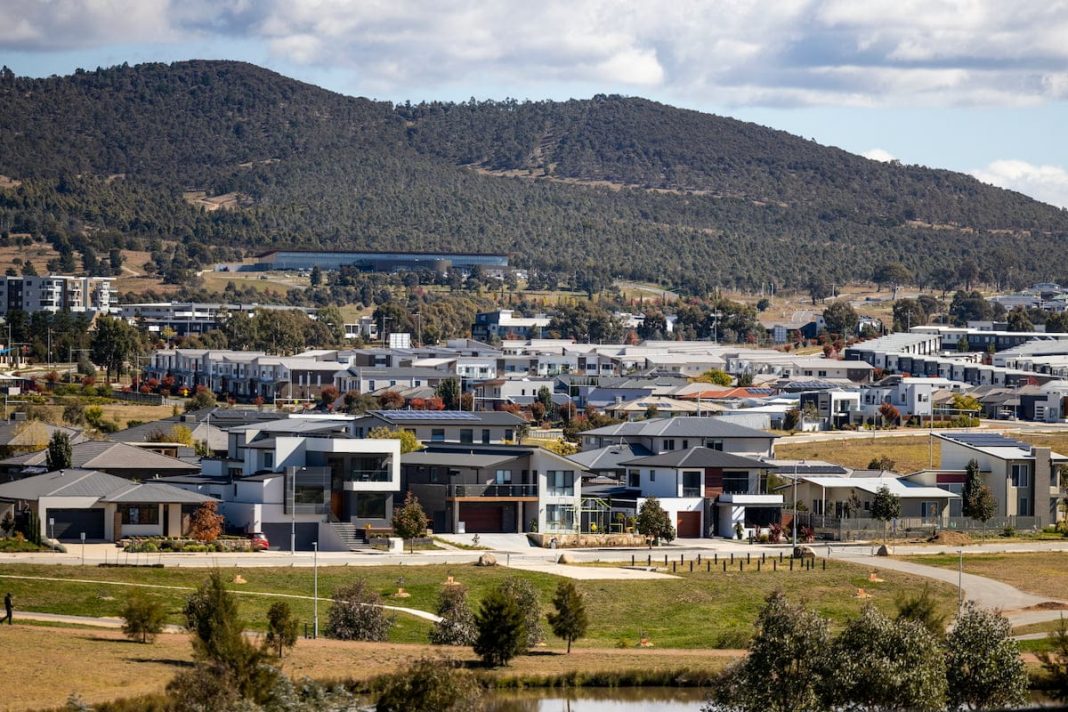Confidence in the ACT property market has surged. The Property Council of Australia’s latest survey shows a rise in confidence from 117 to 124 points – the largest increase in the country. Confidence in the ACT is above national levels.
The expected number of employees (staffing levels) increased from 19 index points to 22, which is higher than the national average of 12. The ACT has the highest expectations for future work opportunities (work schedules), with a score of 56, up from 35. People in the ACT were more optimistic about the region’s economic growth for the coming months (September 2023 quarter) than in the rest of the country; the ACT scored positively, while the national average was negative. In terms of expectations about borrowing money, the ACT was the only state where people had a positive outlook on getting loans or financing their projects (positive debt finance expectations); the rest of the country was less optimistic.
Shane Martin, the Property Council’s ACT and capital region director, commended Canberra’s strong performance, but urged the ACT Government to continue creating favourable conditions.
“This latest data in the ACT shows that industry is ready for work and has confidence in the ACT, but the government needs to continue to set the right parameters to encourage property development,” Mr Martin said.
“The Government has begun reforms that we hope to see capitalise on this industry confidence.”
The ACT Government’s interim Territory Plan, released earlier this month, allowed Residential Zone 1 (RZ1) blocks to have a secondary dwelling up to 120 square metres in size, increasing both housing and renting stock.
Mr Martin welcomed this reform, which “starts the conversation on RZ1”, but said the government needed to do more to encourage residential development and investment “to increase our housing supply and address our growing population”.
The survey predicted that industrial property values would increase substantially due to a shortage of industrial land in the ACT over the next year.
“That is because our supply of industrial land in the ACT is simply not enough, and its value has increased substantially,” Mr Martin said.
Mr Martin recommended the government release more industrial land, potentially in smaller block sizes, to meet the demand, reduce costs, create more jobs, and address supply chain issues.
Mr Martin said the survey revealed that housing supply and affordability remained critical issues for the ACT Government and every government around the country.
“It’s now time to move forward on this and consider other avenues for supply,” he said.
To address this, Mr Martin suggested urban infill, increasing density around group and local centres, and using the road network to guide planning decisions.
“The time is now to capitalise on the confidence in the property industry,” Mr Martin said.
An ACT Government spokesperson said: “The ACT Government’s ambition to increase housing access, affordability, and choice through a range of programs is clearly underpinning strong confidence for the construction industry in the ACT.
“This includes growing public housing, supporting community housing providers, and delivering planning reforms that allow more, high quality, and well-located homes across the city.
“Combined with a strong employment market and the fastest growing population in the country, Canberra continues to attract labour and investment.”



